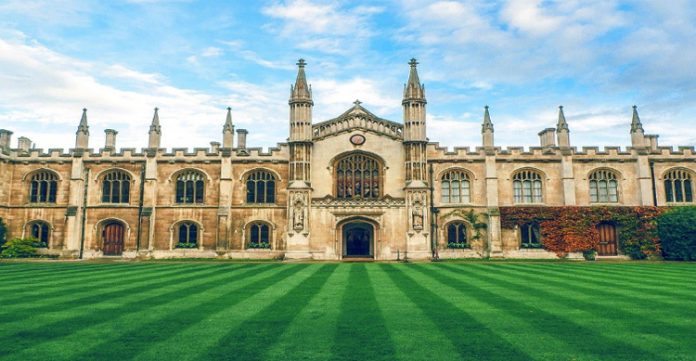The University of Cambridge has honoured the non-executive chairman of Cipla, Yusuf K. Hamied by naming its Chemistry department after him for his tremendous contribution of the world of Chemistry.
The former alumnus of the esteemed university, Mr. Hamied presented a “transformational gift” to his institution in order to maintain the incoming talent at Cambridge for it to remain “world-leading in both teaching and research”. His bundle of gift to his alma mater includes a financial fund to support while acknowledging and attracting the greatest talent and academic grade holders in Chemistry from across the world. This also includes extraordinary early-career researchers in subjects of synthetic organic chemistry and more, along with exceptional doctorate students belonging to UK and other global regions via the new Hamied Scholars Programme.
With the announcement of the Yusuf Hamied Chemistry Department, which formed his favorite spot in his growing years at the university, Mr Hamied expressed his gratitude towards Cambridge for laying the foundation of chemistry for him and teaching the importance and ways of contribution to the society.
As the Cipla chairman was a scholarship student as well, he said that he was pleased and delighted to bring in the future generations. “I will always be indebted to this great institution and everything it stands for,” he added.
During the last 66 years, Mr. Hamied has maintained his close relations with the university through supporting his own College, Christ, and the Department of Chemistry.
He took up the world’s oldest academic Chairs of Chemistry in 2018 that was earlier held by his academic mentor and supervisor Nobel Laureate Lord Alexander Todd during his time as an undergrad and later a PhD student in Cambridge. The Chair, in recognition of his work, is now called the Yusuf Hamied 1702 Chair.
The Head of Chemistry Department, Jamed Keeler said, “We are extremely thankful to Dr Hamied for his visionary support for Chemistry at Cambridge which will allow us to respond flexibly to future opportunities. His gift will ensure we continue to attract outstanding scientists who will make the discoveries that help tackle some of the most pressing challenges in global society.”
According to the University’s list of Mr. Hamied’s contributions, a prime achievement includes the “pioneering” supply of HIV/AIDS drugs to developing nations at a much lesser cost price, thereby saving the lives of hundreds and thousands of people.
The University noted that during the covid-19 pandemic as well, Cipla, Mr. Hamied’s company, is consistently offering medicines at low cost to healthcare centres to be able to save as many people as possible from the virus.
Professor Stephen J. Toope, the Vice-Chancellor of the university spoke about the former bright student’s “unequivocal” commitment towards enhancing the lives of people since long. Expressing his gratefulness to Mr. Hamied, Mr. Toope said that the gift will “benefit generations of students and researchers”.
Mr. Hamied’s long list of accomplishments includes 2004’s honorary fellowship of Christ College, Padma Bhushan, 2012’s honorary fellowship of the Royal Society of Chemistry and an honorary Doctorate of Science from the University of Cambridge in 2014.
More recently, he was elected as an Honorary Fellow of the Royal Society and a Fellow of the Indian National Science Academy in 2019.
In an interview with Economic Times, when asked for his biggest regret in life, Mr. Hamied stated the inability of Cipla, the Indian pharmaceutical company founded by his father, to be able to control the Indian population and promote family planning even after manufacturing hormones and oral contraceptives as early as in 1973. As the company wasn’t big enough back then, he had approached the government whom he offered the hormones at Rs.2 per month, compared to the price set in America that was $6-8. Consequently, the government rejected his offer.


